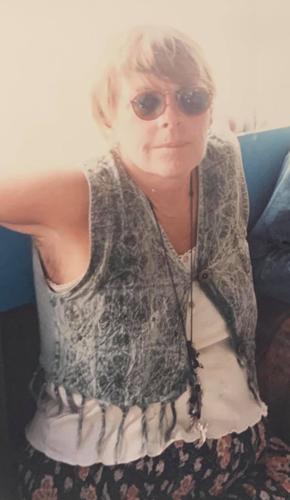The following is the opinion and analysis of the writer:
On Thursday, May 14, 30 people in Arizona died from the coronavirus. My grandmother, Sally Rowley, was among them.
Her birth name was Sara, but she hated it. Sara literally means “noblewoman,” and she was as far from nobility as you could get. Her adopted name, Sally, fit the free-spirited and adventurous person she was.
“I’m sorry for your loss,” a million and one people have told me. I can’t accept that. It wasn’t just my loss, it was everyone’s.
Sally wasn’t the “milk and cookies” kind of grandma. Until very recently, she very rarely told me, “I love you.” Instead, she took me on grand adventures around Tucson. Together, we swam like fish in the pool and watched the sun burst into thousands of colors across the sky.
Before she was a grandmother, she was a freedom rider. In her youth, she was beaten and arrested by the police for protesting.
“I once saw a girl with all her teeth kicked out,” she recalled. “I was afraid that would happen to me, too.” Thankfully, she kept her teeth but spent a good amount of time in jail.
One of the most triumphant moments of her life was when she and her fellow freedom riders went to a church and the congregants all stood and cheered. She said Oprah wanted to interview her, but she didn’t want to be on television.
“I don’t want people to know how old I am,” she quipped. I suspect the real reason was because she didn’t want to broadcast her heroic deeds on television.
She had a rare, quiet strength, and it permeated into everything she did.
When kids purposely mispronounced my name and made fun of my nose, she told me to stay strong and be proud of who I was.
We rode our bikes all across the broken roads of Tucson, and she brought me a book every time she saw me. She also spoke fluent Spanish and tried to teach me, but I always refused.
She survived a war, beatings, and nearly died from MRSA when I was a child. For some reason, I assumed she would be with me forever, to cheer me on and watch me succeed.
Instead, the coronavirus took her from me.
Two days after she was diagnosed, she was well enough to sit up. We could only see her through the window of her room in the nursing home. We had to stay outdoors.
“I love you,” she mouthed. I knew immediately it was a goodbye.
My 17-year-old brother couldn’t even look at her. When she became unresponsive, I started yelling “I love you” and “I need you!” I saw a hint of a smile.
It wasn’t an easy death. I watched her die from that window, gathered with the rest of my family.
“Sally, we’ll be supporting you no matter what,” my mother said. “If you need to let go, that’s OK too.”
My grandmother died the next day. Her best friend and next-door neighbor in the nursing home was also dying from the virus. I heard her granddaughter screaming “I love you,” into the window. We looked at each other with a shared grief I have never experienced before.
Sally left an indelible mark on me and encouraged my curiosity when others told me I asked too many questions. Everyone who knew her, loved her.
In the days that she was dying, the coronavirus didn’t matter anymore. For a brief moment of my existence, she was my grandmother and I was lucky enough to be her granddaughter.
Sally didn’t believe in religion or heaven. Instead, she believed that dead people become part of the earth again. I hope she becomes part of something beautiful.







